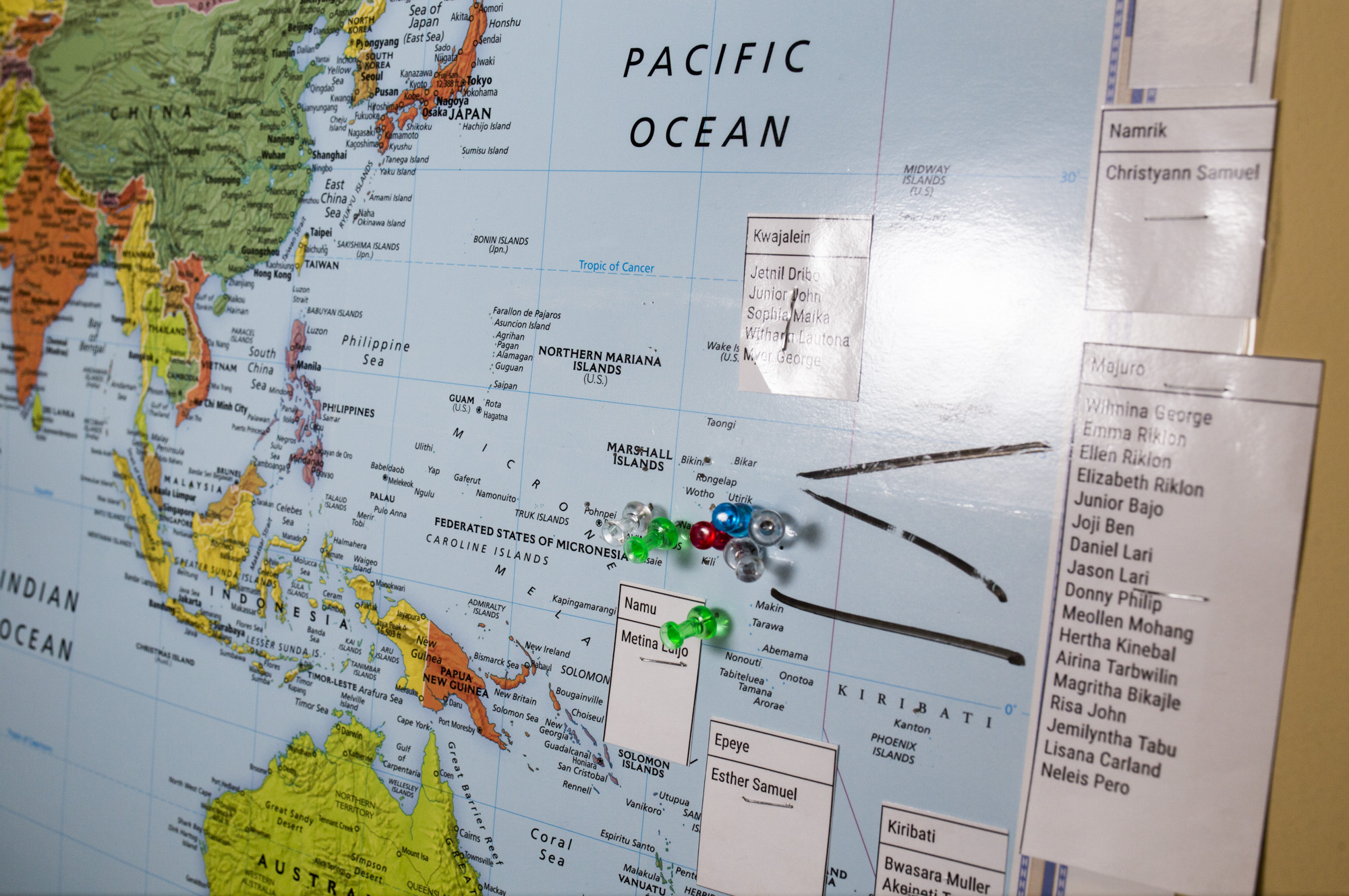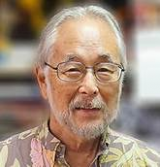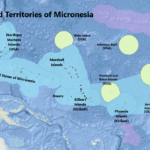Jonathan Okamura: Immigrant Students In Hawaii Defy Stereotypes To Tell Their Own Stories
In video interviews, the Asian and Pacific Islander students talk about the many challenges they face in Hawaii, the pain of leaving their homes and what they plan to give back to their communities.
June 30, 2024 · 6 min read

About the Author
In video interviews, the Asian and Pacific Islander students talk about the many challenges they face in Hawaii, the pain of leaving their homes and what they plan to give back to their communities.
Immigrant Asian and Pacific Islander students from Waipahu and Pearl City High Schools are featured in “Oahu’s (Im)migrant Youth Digital Storytelling Collection.” It was recently produced by Green Card Voices, a nonprofit organization based in Minneapolis, in collaboration with the state Department of Education.
Seventeen immigrant students from Chuuk, the Marshall Islands, Pohnpei, Samoa, Tonga and the Philippines were interviewed on camera for the compilation. They each responded to the same six questions about their previous lives in their home countries, their migration to Hawaii, their new lives here and their plans and hopes for the future.
Collectively, their personal stories provide a compelling narrative that directly counters stereotyped perceptions and representations of Asian and Pacific Islander immigrants in Hawaii, including racist jokes and comments about them disseminated online. The digital collection enables the students to speak for themselves about who they are and what they would like to be upon graduating from high school.
They challenge their stereotyping as freeloaders who come to Hawaii primarily for federal welfare assistance and food stamps, which Compact of Free Association citizens from Micronesia are ineligible to receive, by relating how they and other immigrants move here to be reunited with close family members.
According to the project organizers, “The students’ stories contain themes of loss, sacrifice, resilience and hope for the future. This project gave them an opportunity to tell their story in their own words, stories that often are not heard, and highlight the contributions they hope to make in their new home.”
Due to the widespread belief held by most Americans that people from developing countries immigrate to the U.S. mainly for its economic benefits, they may not appreciate what immigrants give up or leave behind as a result.
I was struck by how most of the students, when asked how they felt about moving to Hawaii, express sadness about separating from their friends and relatives, which might be attributed to their youth at that time, although they were also joining other family members here.

Danet Riteuo from Chuuk in the Federated States of Micronesia adds that migrating to Hawaii meant that she had “to give up my culture and the people that I love the most, and the things I’m used to in my homeland. It’s kind of difficult living here because it’s not the same.”
Despite the majority population of Asian Americans and Pacific Islanders, Hawaii’s local culture is certainly different from the home cultures of the students. They hence inform us of the huge cultural adjustments they must make after moving here, including the totally new experience of having to speak English on a daily basis.
Nekino Capelle is from Kwajelein atoll in the Marshall Islands where people use bicycles to get around. Nekino came to Hawaii to join his mother who had migrated earlier to care for her ill father.
He remarks, “When I came here, I was shocked because there are tall buildings, plenty of cars and a lot of people. When I came to school, I was nervous. I tried to make new friends, but it was hard for me because I’m not really good at speaking English. It would be my first time speaking to other people who are not from the Marshall Islands.”
I also was impressed that, when asked about their future plans, a number of the students reply that after receiving a college education, they intend to return to their home countries to provide educational and health services to their people or assist them here.
Kiulyn John, also from Chuuk in FSM, says she migrated to Hawaii because her grandfather, who was already here, wanted all of his grandchildren to receive a better education. After graduating from college, she plans to return home and teach at an elementary school because of the limited educational opportunities in Chuuk.
She relates, “After high school, I want to do college, and then I want to go to my homeland and help the children with education, so that I can encourage them to do more and better with their life. I want to do something that’s going to help my culture, my people.”
Danet Riteuo shares that she would like to assist people in Chuuk by becoming a nurse. She says she wants “to help the people in my culture because back home people can die easily. They cannot get treated right away because they don’t have the same medicine as we do here. I want to study nursing so I can help the people who are in need.”

Rather than returning home, Stayjay Elidok from Pohnpei in FSM remarks that he wants to serve the Micronesian community in Hawaii. He states, “In the future, I want to study law; becoming a lawyer some day is my dream. I want to contribute to my community by helping the immigrants coming from Micronesia, making them feel welcome, and to let them know that I’m on their side.”
Several other students have more modest aspirations after graduation from high school, such as joining the military, which is not uncommon among COFA and Samoan students. Military service is also viewed by them as a means to finance a college education through the GI benefits provided.
The collection of stories provides a valuable record in their own words of the contemporary lives of particularly Micronesian and Filipino students making what can be a difficult transition to living in Hawaii. Despite not speaking in their first language, their honesty, insightfulness and willingness to share their experiences should be fully appreciated.
However, since the students are responding to questions posed to them, they don’t mention any racism and discrimination they might have encountered, such as racist name-calling and bullying, although I know from published sources such incidents regularly occur at school.
The DOE organizers of the storytelling collection express the “hope this project inspires our community, and especially other educators, to see the incredible potential and resilience of their multilingual students.” Rather than viewing them as an unwanted financial and social burden on the state, they maintain that the immigrant students “bring valuable perspectives and assets to our classrooms and enrich our communities.”
The storytelling project was supported by the DOE Leeward District English Language team and Waipahu High School teachers in its English Speakers of Other Languages program. They include Jeremiah Brown, the adviser to Waipahu’s Multilingual Marauders club for students who speak more than one language.
 Sign up for our FREE morning newsletter and face each day more informed.
Sign up for our FREE morning newsletter and face each day more informed.
Read this next:
What True Conservation Of The Pacific Remote Islands Involves
By Angelo Villagomez · July 1, 2024 · 4 min read
Local reporting when you need it most
Support timely, accurate, independent journalism.
Honolulu Civil Beat is a nonprofit organization, and your donation helps us produce local reporting that serves all of Hawaii.
ContributeAbout the Author
Jonathan Okamura is professor emeritus at the University of Hawaii Manoa, where he worked for most of his 35-year academic career, 20 years of which were with the Department of Ethnic Studies. He continues to research, write and lecture on problems and issues concerning race and racism. Opinions are the author’s own and do not necessarily reflect Civil Beat’s views. You can reach him by email at jokamura@civilbeat.org.
Latest Comments (0)
True that: my Gen-Z was born & bred here and encounters that daily, despite a STEM degree, good job, and model behavior. I did too, with Gen-X differences hinting at a diagnosis and a way out.First: the quality of English to which we are exposed, and the mercantile values it belies. No longer Cogito ergo sum, it's now "I consumed, therefore I am": a leg up for those with extra discretionary means, while near insurmountable for those without (or who save to build capital, pay for education, etc). Marketing rhetoric pervades conversation, hobbling immigrants from the start in semiotic code.It's mostly reinforced by social media: in my day, "shared" experience & language leaned on books, the workplace, maybe sports & film - all more thought out, time-tested, and reasoned. Now, it's quick memes (eg "Wanted: 6'5" blue eyes, 6 figure salary & nice car"), and substitution of "action" words for consumption (nonsensical in Austronesian languages but common for 2024 US English: eg "Do lunch", "Build my brand"). Mixed with opaque definitions of success, queuing up is not a winning recipe.
Kamanulai · 1 week ago
The stories are about Pacific Islander immigrants. It should be reframed as Micronesian immigrant stories. Focused attention of telling their stories requires proper identification.
AlohaState13 · 1 week ago
I like these heartfelt stories of immigration, your home island getting nuked certainly is reason to immigrate, along with a devastating military occupation x2, the first one arguably much worse than the second. Then they are told that their islands will soon be under water is another good reason to immigrate.
Chroniccommentor · 1 week ago
About IDEAS
IDEAS is the place you'll find essays, analysis and opinion on every aspect of life and public affairs in Hawaii. We want to showcase smart ideas about the future of Hawaii, from the state's sharpest thinkers, to stretch our collective thinking about a problem or an issue. Email news@civilbeat.org to submit an idea.

